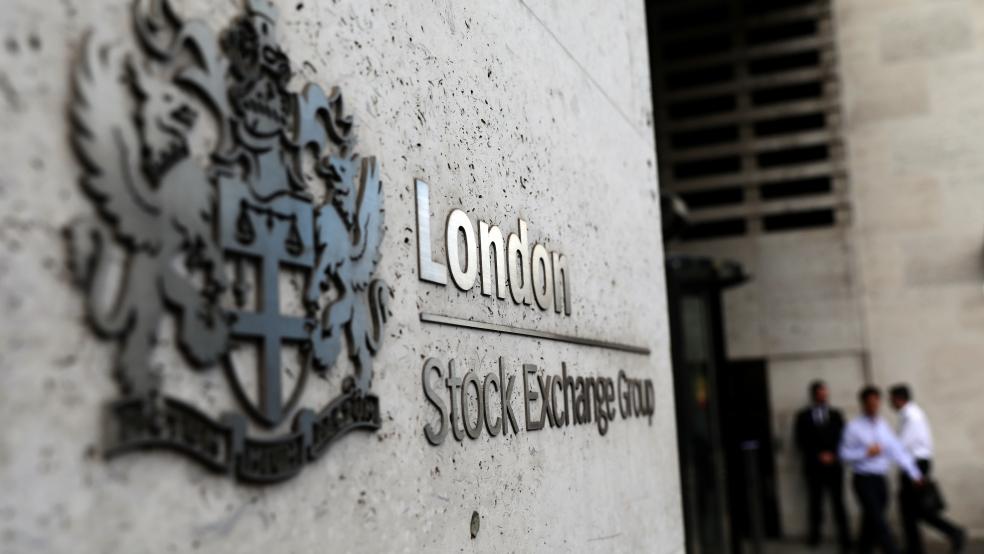NEW YORK (Reuters) - A gauge of global equity markets edged lower on Thursday amid investor worries over U.S. government funding, but the U.S. dollar rebounded after recent weakness as central bankers convened for an annual policy summit at Jackson Hole, Wyoming.
Yields on U.S. Treasury debt rose in light trading as investors awaited speeches scheduled for Friday by Federal Reserve Chair Janet Yellen and European Central Bank President Mario Draghi.The annual central bankers' retreat coincides with fresh indications of global growth, with copper rising to a near three-year high on signs of stronger demand in top consumer China as inventories fell in London warehouses.President Donald Trump's inability to usher legislation through Congress, however, is worrisome, said Rick Meckler, president of hedge fund LibertyView Capital Management LLC in Jersey City, New Jersey."Investors are reluctant to get too far out on their skis in terms of buying stocks," Meckler said. "Rallies are not extending the way they had when people had more confidence that the Trump agenda, particularly tax cuts, would be passed."In a post on Twitter, Trump said Congress could have avoided a legislative "mess" if it had heeded his advice on raising the amount of money the government can borrow, known as the debt ceiling.A late-September deadline looms for U.S. officials to raise the debt ceiling or risk default, leading investors to anticipate a volatile month, said Michael Purves, chief global strategist and head of equity derivatives research at Weeden & Co in Greenwich, Connecticut."Why would you rush to buy this dip with the debt ceiling looming?" Purves said.MSCI's broad index of world stock markets <.miwd00000pus> see-sawed for most of the session, ending 0.06 percent lower. In Europe, but the FTSEurofirst 300 index <.fteu3> of leading regional shares closed 0.22 percent higher.The Dow Jones Industrial Average <.dji> closed down 28.69 points, or 0.13 percent, to 21,783.4. The S&P 500 <.spx> lost 5.07 points, or 0.21 percent, to 2,438.97 and the Nasdaq Composite <.ixic> dropped 7.08 points, or 0.11 percent, to 6,271.33.Developing markets bucked the trend. MSCI's emerging markets index <.mscief> rose 0.62 percent. The dollar rebounded, helped by fewer-than-expected U.S. initial jobless claims, which rose 2,000 to a seasonally adjusted 234,000 for the week ended Aug 19.The greenback is down 14 percent against the euro this year, driven by dashed expectations for tax cuts and other pro-growth plans by the Trump administration, which has eroded the case for further pro-dollar rises in U.S. interest rates.The dollar index <.dxy> gained 0.16 percent, with the euroStocks slip on Trump agenda concerns, dollar gains

NEIL HALL



